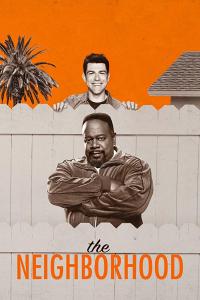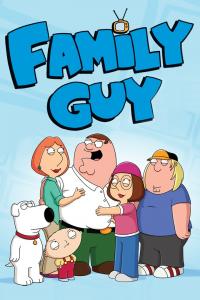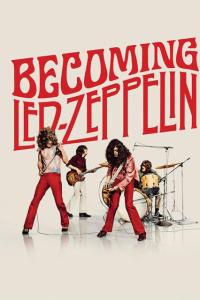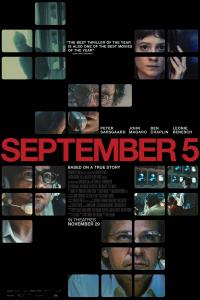Torrent details for "Third Democratic Debate, Part 1, 2019 09 12 720p WEBRip x264-PC.mp4" Log in to bookmark
Controls:
Category:
Language:
 English
EnglishTotal Size:
1.88 GB
Info Hash:
114283d17393827ed0c18f01f00653d31ee81873
Added By:
Added:
14-09-2019 05:34 (edited 14-09-2019 05:39) by Pawpcorn




Views:
1,514
Health:

Seeds:
0
Leechers:
0
Completed:
97
Thanks for rating :
tinous (5),
tinous (5),
Third Democratic Debate, Sept. 12, 2019, 720p, PART 1
sans ABC commentary :-)

Duration: 2 Hours, 35 Minutes (total of parts ONE and TWO)
Ten Democrats took the stage Thursday night, for the third of 12 presidential debates. This marked a stark difference from the first two, which featured 20 candidates spread over two nights. Moderated by David Muir, Linsey Davis, George Stephanopoulos, and Jorge Ramos, ABC wasted no time getting things started, beginning the broadcast with all of the potential presidents in place at their podiums.
Ramos offered a poignant greeting to Spanish speakers, followed by Muir’s quick rundown of rules that most candidates would ignore. Then the debate was on.
Opening statements began with Obama-era HUD secretary and Texas native Julián Castro. Next up was Minnesota Sen. Amy Klobuchar, who came out swinging against Donald Trump. Former Texas Rep. Beto O’Rourke followed, in one of the most muted appearances he’s given so far. New Jersey Sen. Cory Booker was next, with an upbeat anecdote from his time as Newark mayor. Entrepreneur Andrew Yang got the mic next, using his statement time to announce a “pilot” program of his proposed “Freedom Dividend” of $1,000 per adult, per month.
The rest of the candidates chuckled—most audibly California Sen. Kamala Harris, while the camera focused on South Bend Mayor Pete Buttigieg, who rolled his eyes before launching into his opening remarks.
Harris was next, and used her time to taunt Trump, who, like Klobuchar, she said was sure to be watching. Her humor landed much better than Klobuchar’s.
Vermont Sen. Bernie Sanders was next, dropping “oligarchic” into the mix without missing a beat. His voice seemed on the verge of leaving him, though. I hope he gets some honey tea. Massachusetts Sen. Elizabeth Warren followed, playing up her years in Houston, where she attended college and spent her early parenting years. Finally, former Vice President Joe Biden invoked JFK and a refusal to postpone the most important work.
HEALTHCARE
First question, from Stephanopoulos, was for Biden, and tried to pit the former vice president against Warren and Sanders. Biden neatly dodged the potential bullet of saying whether or not the country was as progressive as the senators.
He then invoked President Barack Obama for the first time when comparing the three’s stances on healthcare. Warren didn’t take the bait, however, taking a moment to praise Obama before differentiating her healthcare program.
Stephanopoulos then offered the same “higher taxes” bait question Warren dodged just last week. She steered the discussion back on track in the same way, by focusing on net costs.
Sanders was up next with the same rebuttal-”higher taxes” combo that Warren faced. After a quick homage to his own “I wrote the damn bill” catchphrase, Sanders insisted that Medicare for All is the most cost-effective plan, before calling out ABC for selling ad time to the medical industry during the debate just so they could fear monger.
Biden got the rebuttal this time, and mocked M4A, feeding the “higher taxes” frenzy by promising smaller paychecks for Americans; he also noted that his plan allows people who “love” their insurance plans to keep them.
Warren laughed him off, noting that nobody likes their insurance companies … they like their doctors. Sanders called Biden by his name and took a similar tack as Warren, pointing out that nobody loves their insurance premiums.
Twenty minutes in, the first non top-three candidate got the mic, when Klobuchar was asked who she thought were the “most extreme” of the candidates. Klobuchar also dodged the bait, calling her fellow candidates her friends before getting in a dig at Sanders. She then conveyed a desire to do no harm, and force nobody off their current plans, which she says is on page eight of Sanders’ plan.
Buttigieg got some face time next, making another “damn bill” joke, and piously stating that he “trusts Americans” and Sanders does not. Sanders pointed out that medical care for many depends on employers, and freedom of choice doesn’t exist when insurance companies decide which doctors people can see.
Harris was up next, throwing nods to both Obama and Sanders, after being asked why she’s abandoned Medicare for All for her own plan. She only briefly touched on her own plan before shifting to Trump’s war on the ACA, recalling the moment that the late Arizona Sen. John McCain’s thumbs down saved healthcare as we know it, and promising that if Trump stays in the White House, he’ll get rid of “all of it.”
Biden then popped in with a quick and exasperated rant about everyone’s refusal to talk about the taxes, and mocked Sanders’ promises. Sanders fired back before O’Rourke finally entered the fray, maintaining his newfound reticence.
Castro reminded Biden that he also worked for the Obama industry and after quoting Biden back to himself, teased the veep for forgetting his own words. It got a bit heated and Castro was booed by the crowd. Later, Twitter users debated whether or not Castro quoted Biden correctly.
Buttigieg saw a chance to be the noble one who rose above, but Castro wasn’t having it. Klobuchar took Buttigieg’s side.
Yang brought up that healthcare tied to employers continued to endanger Americans, especially when companies keep full-time employees as contractors. He cited the practices of the Cleveland Clinic as a potential model for the future.
Booker was the last to enter the healthcare fray, not taking any side but that of the voters. Like Harris, he reminded the room how important is is to make Trump a one-term president.
SYSTEMIC RACISM AND CRIMINAL JUSTICE REFORM
Healthcare was done then, with Davis paying homage to the host university by shifting focus to young black voters. Citing the recent attack on Latinx people in an El Paso Walmart last month, she asked O’Rourke why he’s best-suited to unite the divided country.
O’Rourke came correct with his intersectional approach to policy again, citing key issues that affect black voters, and vowing to sign a reparations bill.
Castro praised O’Rourke next, before pointing to his career record of serving all Americans.
Booker vowed to create an entire office to fight white supremacy, citing key issues—including the little-mentioned crisis of environmental racism.
Bringing up problems in South Bend, Davis asked Buttigieg how he would approach systemic racism. After a nod toward the Trump influence, the mayor noted that the system was racist long before he was elected. After bringing up several threads of systemic racism, Buttigieng said it’s time to stop pitting people against each other.
Davis turned to Harris next, and asked why her stances have changed; more pointedly, why she didn’t make changes to policy (like legalizing marijuana) when she had to power to do so. Harris insisted that her record has been distorted and clarified several points before listing aspects of her criminal justice reform plan, which she said has been embraced by several activists.
Davis then turned to Klobuchar, citing some damning descriptions of Klobuchar’s record on criminal justice. Like Harris, she insisted that those simply were not the facts of her record. She then pivoted to the First Step Act and the need for a Second Step Act, and voiced support for returning voting rights to former inmates.
Biden was up next with a question about mass incarceration; after an anecdote about his hometown after the assassination of Rev. Dr. Martin Luther King Jr., he fired away hard against the prison industrial complex and the changes that needed to be made. Like Klobuchar, he voiced support for restoring voting rights for felons, and added access to financial aid for college.
Booker, as the only black man on the stage, reminded the room of just how disparate arrest and conviction rates are for Americans like him. He then vowed to grant clemency to over 17,000 wrongly incarcerated individuals—and encouraged the other candidates to do the same.
GUN VIOLENCE AND REFORM
Muir was up next, asking Biden about gun safety and gun reform, noting that he couldn’t get it done after Sandy Hook and asking why anyone should trust him to do so now. Biden asserted that he’d beat the NRA and pointed out that there’’s been a sea change that makes things possible that weren’t back then. He then took a moment to thank and praise O’Rourke for his work in El Paso after the Walmart shooting last month.
Next up, Muir asked Harris if Biden was right about the limitations of the executive order, and what a president can and cannot do. Harris made a “Yes We Can” joke that seemed to go right over Biden’s head. After a trip through the violence she saw as prosecutor, she vowed to take swift action on gun reform. Harris also thanked and praised O’Rourke for his work in El Paso after the August massacre.
Muir then asked O’Rourke about his buyback proposal, and whether or not it’s the same as confiscation. After a gory explanation of what exactly an assault weapon can do, O’Rourke absolutely owned the fact that he wants them gone, but conceded that it needs to be a bipartisan discussion.
Next Klobuchar asserted that she supports gun reform, especially making sure that domestic abusers don’t get AR-15s; it wasn’t clear if she thinks it’s okay for anyone else to have them. She closed with a call to action for Congress, saying that it’s time to pass legislation now—2021 will be too late.
Booker emotionally encouraged a culture of empathy, so that it’s not necessary for people to endure a tragedy in order to care about gun reform. Muir followed up by asking if there’s a Republican in the Senate who he thinks will support him. Booker explained that he’s out to create a movement, noting that more people have died from gun violence in his lifetime than in several wars. He vowed to “overwhelm” Republicans.
Warren finally got an in to speak to guns: How can she get Republicans to unite with Democrats on gun control? Warren noted that we need to get the framing right: We have a gun violence problem far deeper than mass shootings. She noted that there is no “one and done” solution for gun reform, and called out the corruption of gun lobby-owned Republicans and the need to end the filibuster to get things done that the nation wants done.
Sanders didn’t voice support for ending the filibuster, but insisted that there are ways of doing things that don’t require 60 votes, echoing last week’s town hall on the climate crisis. He then echoed Warren’s call to end D.C. corruption, even calling the NRA by name, proudly citing his “F” rating.
Ramos was next, focusing on immigration, of course.
IMMIGRATION
First, he asked Biden why he voted for “7,000 miles” of border fencing in 2008, before asking Biden to admit that Obama and he made mistakes with their immigration policies.
Biden dodged the question, saying it’s impossible to compare Obama to Trump, and citing DACA and other Obama accomplishments. He then launched into a list of the Trump policies he would roll back, and noted that the Violence Against Women Act still hasn’t been renewed by Republicans.
Ramos pushed him to answer the question he was actually asked. Biden dodged twice before Ramos gave up and turned to Castro. Castro challenged Biden’s habit of taking credit for Obama’s good works, and claiming he was just a helpless vice president when asked about his less-good acts.
Warren was next, vowing to expand legal immigration and find pathways to citizenship for DACA recipients, their elders, those on expired visas, and more. She then vowed to rebuild the system at our borders from the ground up. Finally, she pointed out that we need to restore aid to suffering countries so people are less likely to need to flee their homelands.
Yang was next; Ramos brought up anti-immigrant sentiments, and asked if he supported a merit system. Yang shared his family history before pointing out that immigrants are a positive addition to the American fabric. He promised to invite immigrants to the U.S., rather than turn them away.
Ramos then asked Buttigieg if Trump supporters who chant “Build that wall” and “Send her back” are racists. Buttigieg only opted to call those “racist” actions.
Ramos and O’Rourke greeted each other in Spanish before the question: Does he know what he wants to do about “overstay” visas now? In Spanish and English, O’Rourke vowed to change American immigration policy to one of respect, and voiced a desire to atone as a nation for the children who have died in immigrant detention.
Mercifully, there was our first break.
:) :) :) :) :) :) :) :) :) :) :) :) :)
And we’re back!
THE TRADE WAR WITH CHINA
With hardly a welcome back, Stephanopolous asked Yang if he’d repeal Trump’s tariffs on China. Yang said he would not do it immediately.
Next, Buttigieg faced the same question, mocking Trump for his inability to make a deal with Chinese president Xi Jinping, and pointing out the importance of American leadership right now. Stephanopolous asked again about tariffs, but Buttigieg didn’t quite answer, instead pointing out that Americans are paying the real price. Next, Klobuchar was asked about her support of steel tariffs. She vowed to renegotiate, pointing out the failures of Trump as he’s declared tariffs, only to back down from them under pressure.
Castro was asked where leverage comes from when a new president tries to renegotiate. Castro said that the U.S. does have leverage and brought up the importance of protecting human rights, citing in particular the suffering of the Uighur Muslims in China.
Warren took the mic next, asked where Trump went wrong. Warren listed what she would do instead: making sure that unions, human rights leaders, and farmers are at the negotiating tables. She vowed to push global labor and environmental standards up as part of trade negotiations.
Harris was then asked how her trade policy would compare to Obama’s. Citing no problems with Obama, she decimated Trump’s approach to trade, and declared she wants to export American products, not jobs. She circled back to China, pointing out that we need to work with them on key issues that go far beyond Trump. She then likened Donald Trump to the real “short dude” behind the curtain in The Wizard of Oz.
Sanders was next, and made no secret of his long-held opposition to Biden’s stances, including NAFTA. He then eviscerated Trump before promising a trade policy that represents workers and doesn’t support companies who outsource labor.
Biden’s rebuttal began with the importance of working with China on the environment, and said it was necessary to corral the world to make sure China is not setting the rules.
Booker got the last gasp, pointing out the isolationism fostered by Trump’s policies, driven home by a failed joke about Canadian PM Justin Trudeau … and his hair.
THE WAR IN AFGHANISTAN/THE ARMED FORCES/FOREIGN POLICY
Muir took over for Stephanopolous next, shifting the conversation to the U.S. military and the troops currently deployed in Afghanistan. Warren was asked if she still wants to bring all of the troops home without a deal with the Taliban, and without hesitation, she said she does. She also insisted that we must work with all of our allies if we want to keep troops home. Muir pushed back, saying that experts say troops cannot be withdrawn without a Taliban deal. Warren declared that the problems in Afghanistan are not the kind that the military can solve.
Buttigieg, as the lone Afghanistan veteran on the stage, was asked his plan, and vowed a three-year sunset for the war, and requiring Congress to finally vote on next steps, in a powerful soundbite about courage.
Biden was next, asked if it was wrong for the U.S. to pull out of Iraq when it did, since ISIS ultimately benefited from it. Biden offered a quick “no,” then thanked Buttigieg for his service before opting to focus on Afghanistan instead. He circled back to Iraq and admitted he should not have voted the way he did in 2002.
Sanders was next, and pointed out that he never believed Dick Cheney and George W. Bush when they insisted we needed to enter Iraq, unlike Biden.
He also noted that he’s the only one on the stage to vote against all three of Trump’s military budgets. He vowed to re-establish the U.S. as a nation that can help struggling countries rebuild their economies, but reiterated that bombing Afghanistan and Iraq was the wrong thing to do.
Yang was asked why he’s most qualified to be commander in chief. Yang voiced his support for ending “the forever wars,” and simply said he had the right values to make the right choices.
CLIMATE CHANGE
Ramos was next, and asked Sanders why he wouldn’t denounce Venezuela’s Nicolas Maduro as a dictator; secondly, he was asked to differentiate his brand of socialism from that of Venezuela’s. Sanders called Maduro a “pirate,” and said he supports the sort of socialism seen in Canada and Scandinavia. He then tackled wealth inequality, saying that democratic socialism seeks an economy that works for all.
Castro then cheerfully called Maduro a dictator, then brought up TPS and the need for a 21st century Marshall Plan for countries like El Salvador and Honduras, and voiced a desire to be a better neighbor to Latin America.
Ramos then brought up the Amazon, and hit Booker, the well-known vegan, with his version of the so-called “cheeseburger” question, namely whether or not he wants the nation to embrace his lifestyle. Booker shut it down brilliantly, and then swiftly pivoted a subject nobody did in the previous discussion: veterans.
O’Rourke was asked about U.S. farmers, and answered well, touching on common themes he offered from the climate town hall. Klobuchar also leaned on her climate town hall performance, repeating her “First Seven Days” plan.
Warren was then asked about climate change, and reiterated her embrace of Washington Gov. (and former candidate) Jay Inslee’s “open source” plan to save the planet. She also targeted D.C. corruption and the role it plays in the nation’s destruction of the environment.
Harris was next, sharing an anecdote about her nieces and the world they’re facing. Citing her time as the California Atty. General, she promised that taking on the oil companies can and does work.
Yang pointed out that money will bleed in through any regulations, so the money needs to come from different sources, and reiterated his “Democracy Dollars” program, also mentioned at last week’s town hall.
EDUCATION and OPPORTUNITY
Davis was next, pointing out that Yang is a huge proponent of charter schools, and has said things that can be viewed as anti-teacher unions. Yang then said he supports “good” schools, and the elimination of standardized tests; he also focused on the power of outside factors in the success of students.
Buttigieg fired back that he’d hire an education secretary who actually believes in public education, and the importance of compensating and supporting teachers.
Warren pointed out that she was the only former public school teacher on the stage, and asserted that public school money should only go to public schools. She also vowed to appoint an education secretary who had actually taught public school. She then launched her plans to improve education—from Pre-K to student debt.
Harris was next, and paid tribute to a beloved teacher before vowing to close the teacher pay gap. Next, she paid homage to HBCUs and vowed to invest in them—particularly teacher training.
Sanders took the mic next, pointing out that despite being the richest country on earth, teachers can’t survive in their field. He then cited his plan to ensure all teachers make at least $60,000 per year before touching on universal Pre-K, debt-free colleges, and the cancellation of all student debt.
Davis quoted a less-than-woke quote of Biden’s from over 40 years ago where he didn’t want to be blamed for slavery. The audience jeered as Biden spat back his record, tackling redlining and more, and veered to education and knowledge gaps faced by low-income communities.
Castro was next, reminding the room that schools are segregated because neighborhoods are. He then touched on his education plan, including assistance for entire families, such as helping parents get their GED and more. He then vowed to require more transparency from charter schools.
Davis then turned to Booker and his plan to tackle both the achievement and opportunity gaps. Booker cited changes to the Newark schools during his time mayor, including stats as a high-poverty district with high-performance. He then explored the importance of a holistic approach to tackling inequality, from education to environmental justice.
Then, again, a merciful break.
:) :) :) :) :) :) :) :) :) :) :) :) :)
And we were back, with Stephanopoulos asking the go-to “first-job interview” question: What’s the hardest job setback you ever faced and what did you learn from it?
Biden was first, saying he hasn’t encountered any major setbacks … only to be interrupted by an extended protest. All of the candidates seemed confused while they waited for security to remove them; the ABC feed didn’t show that the stage was rushed.
DACA students disrupting: We are #daca students, our lives are at risk!
Biden was definitely quieter after the protest, and got emotional, talking about losing his first wife and daughter, and then his son Beau; in the end, he said, it’s all about finding purpose.
Warren was next, humorously sharing her lifelong dream of being an educator, and the obstacles she faced on the path to becoming a special needs teacher—plus the assistance she received along the way.
Next, Sanders spoke of the difference between personal and professional resilience, tracking his political ascent (and the many losses that preceded it) before segueing into his political record and why he’d be a good president.
Harris opened up with the many discouraging comments she heard every time she ran for office as a woman of color, and what happened when she didn’t listen (spoiler alert: She won).
Buttigieg shared what it was like to be closeted before and during his military service, and the importance of trust between voters and elected officials.
Yang was up next, offering tips for entrepreneurs before exploring the pain of having his first company fail, and his evolution through the nonprofit industry and to the debate stage.
Booker talked about taking on the Newark political machine in 2002, and the Oscar-nominated documentary about his oh-so-public failure. The lesson learned? Build a bigger coalition, bit by bit—and four years later, he won. Like Buttigieg, he also extolled the value of trust.
O’Rourke lifted up his El Paso as his greatest teacher, citing the recent domestic terror attack on a local Walmart. He shared stories of multiple shooting victims, including one who, from his hospital bed, was still focused on his job as a soccer coach.
Klobuchar told the story of her father choosing addiction treatment over jail, and the lessons it taught her, before talking about the struggle her daughter faced for the first year of her life.
Castro talked about choosing a low-paying San Antonio city council gig over a six-figure gig as an attorney, despite the impact on his survival.
And just like that, it was over. Wait … didn’t the moderators forget something?
Three hours, not one question on abortion—with women's rights under attack across our country. :facepalm
...adapted from our good friends at KOS:
https://www.dailykos.com/stories/2019/9/12/1885159/-Your-blow-by-blow-Twitter-recap-of-the-third-Democratic-debate
sans ABC commentary :-)

Duration: 2 Hours, 35 Minutes (total of parts ONE and TWO)
Ten Democrats took the stage Thursday night, for the third of 12 presidential debates. This marked a stark difference from the first two, which featured 20 candidates spread over two nights. Moderated by David Muir, Linsey Davis, George Stephanopoulos, and Jorge Ramos, ABC wasted no time getting things started, beginning the broadcast with all of the potential presidents in place at their podiums.
Ramos offered a poignant greeting to Spanish speakers, followed by Muir’s quick rundown of rules that most candidates would ignore. Then the debate was on.
Opening statements began with Obama-era HUD secretary and Texas native Julián Castro. Next up was Minnesota Sen. Amy Klobuchar, who came out swinging against Donald Trump. Former Texas Rep. Beto O’Rourke followed, in one of the most muted appearances he’s given so far. New Jersey Sen. Cory Booker was next, with an upbeat anecdote from his time as Newark mayor. Entrepreneur Andrew Yang got the mic next, using his statement time to announce a “pilot” program of his proposed “Freedom Dividend” of $1,000 per adult, per month.
The rest of the candidates chuckled—most audibly California Sen. Kamala Harris, while the camera focused on South Bend Mayor Pete Buttigieg, who rolled his eyes before launching into his opening remarks.
Harris was next, and used her time to taunt Trump, who, like Klobuchar, she said was sure to be watching. Her humor landed much better than Klobuchar’s.
Vermont Sen. Bernie Sanders was next, dropping “oligarchic” into the mix without missing a beat. His voice seemed on the verge of leaving him, though. I hope he gets some honey tea. Massachusetts Sen. Elizabeth Warren followed, playing up her years in Houston, where she attended college and spent her early parenting years. Finally, former Vice President Joe Biden invoked JFK and a refusal to postpone the most important work.
HEALTHCARE
First question, from Stephanopoulos, was for Biden, and tried to pit the former vice president against Warren and Sanders. Biden neatly dodged the potential bullet of saying whether or not the country was as progressive as the senators.
He then invoked President Barack Obama for the first time when comparing the three’s stances on healthcare. Warren didn’t take the bait, however, taking a moment to praise Obama before differentiating her healthcare program.
Stephanopoulos then offered the same “higher taxes” bait question Warren dodged just last week. She steered the discussion back on track in the same way, by focusing on net costs.
Sanders was up next with the same rebuttal-”higher taxes” combo that Warren faced. After a quick homage to his own “I wrote the damn bill” catchphrase, Sanders insisted that Medicare for All is the most cost-effective plan, before calling out ABC for selling ad time to the medical industry during the debate just so they could fear monger.
Biden got the rebuttal this time, and mocked M4A, feeding the “higher taxes” frenzy by promising smaller paychecks for Americans; he also noted that his plan allows people who “love” their insurance plans to keep them.
Warren laughed him off, noting that nobody likes their insurance companies … they like their doctors. Sanders called Biden by his name and took a similar tack as Warren, pointing out that nobody loves their insurance premiums.
Twenty minutes in, the first non top-three candidate got the mic, when Klobuchar was asked who she thought were the “most extreme” of the candidates. Klobuchar also dodged the bait, calling her fellow candidates her friends before getting in a dig at Sanders. She then conveyed a desire to do no harm, and force nobody off their current plans, which she says is on page eight of Sanders’ plan.
Buttigieg got some face time next, making another “damn bill” joke, and piously stating that he “trusts Americans” and Sanders does not. Sanders pointed out that medical care for many depends on employers, and freedom of choice doesn’t exist when insurance companies decide which doctors people can see.
Harris was up next, throwing nods to both Obama and Sanders, after being asked why she’s abandoned Medicare for All for her own plan. She only briefly touched on her own plan before shifting to Trump’s war on the ACA, recalling the moment that the late Arizona Sen. John McCain’s thumbs down saved healthcare as we know it, and promising that if Trump stays in the White House, he’ll get rid of “all of it.”
Biden then popped in with a quick and exasperated rant about everyone’s refusal to talk about the taxes, and mocked Sanders’ promises. Sanders fired back before O’Rourke finally entered the fray, maintaining his newfound reticence.
Castro reminded Biden that he also worked for the Obama industry and after quoting Biden back to himself, teased the veep for forgetting his own words. It got a bit heated and Castro was booed by the crowd. Later, Twitter users debated whether or not Castro quoted Biden correctly.
Buttigieg saw a chance to be the noble one who rose above, but Castro wasn’t having it. Klobuchar took Buttigieg’s side.
Yang brought up that healthcare tied to employers continued to endanger Americans, especially when companies keep full-time employees as contractors. He cited the practices of the Cleveland Clinic as a potential model for the future.
Booker was the last to enter the healthcare fray, not taking any side but that of the voters. Like Harris, he reminded the room how important is is to make Trump a one-term president.
SYSTEMIC RACISM AND CRIMINAL JUSTICE REFORM
Healthcare was done then, with Davis paying homage to the host university by shifting focus to young black voters. Citing the recent attack on Latinx people in an El Paso Walmart last month, she asked O’Rourke why he’s best-suited to unite the divided country.
O’Rourke came correct with his intersectional approach to policy again, citing key issues that affect black voters, and vowing to sign a reparations bill.
Castro praised O’Rourke next, before pointing to his career record of serving all Americans.
Booker vowed to create an entire office to fight white supremacy, citing key issues—including the little-mentioned crisis of environmental racism.
Bringing up problems in South Bend, Davis asked Buttigieg how he would approach systemic racism. After a nod toward the Trump influence, the mayor noted that the system was racist long before he was elected. After bringing up several threads of systemic racism, Buttigieng said it’s time to stop pitting people against each other.
Davis turned to Harris next, and asked why her stances have changed; more pointedly, why she didn’t make changes to policy (like legalizing marijuana) when she had to power to do so. Harris insisted that her record has been distorted and clarified several points before listing aspects of her criminal justice reform plan, which she said has been embraced by several activists.
Davis then turned to Klobuchar, citing some damning descriptions of Klobuchar’s record on criminal justice. Like Harris, she insisted that those simply were not the facts of her record. She then pivoted to the First Step Act and the need for a Second Step Act, and voiced support for returning voting rights to former inmates.
Biden was up next with a question about mass incarceration; after an anecdote about his hometown after the assassination of Rev. Dr. Martin Luther King Jr., he fired away hard against the prison industrial complex and the changes that needed to be made. Like Klobuchar, he voiced support for restoring voting rights for felons, and added access to financial aid for college.
Booker, as the only black man on the stage, reminded the room of just how disparate arrest and conviction rates are for Americans like him. He then vowed to grant clemency to over 17,000 wrongly incarcerated individuals—and encouraged the other candidates to do the same.
GUN VIOLENCE AND REFORM
Muir was up next, asking Biden about gun safety and gun reform, noting that he couldn’t get it done after Sandy Hook and asking why anyone should trust him to do so now. Biden asserted that he’d beat the NRA and pointed out that there’’s been a sea change that makes things possible that weren’t back then. He then took a moment to thank and praise O’Rourke for his work in El Paso after the Walmart shooting last month.
Next up, Muir asked Harris if Biden was right about the limitations of the executive order, and what a president can and cannot do. Harris made a “Yes We Can” joke that seemed to go right over Biden’s head. After a trip through the violence she saw as prosecutor, she vowed to take swift action on gun reform. Harris also thanked and praised O’Rourke for his work in El Paso after the August massacre.
Muir then asked O’Rourke about his buyback proposal, and whether or not it’s the same as confiscation. After a gory explanation of what exactly an assault weapon can do, O’Rourke absolutely owned the fact that he wants them gone, but conceded that it needs to be a bipartisan discussion.
Next Klobuchar asserted that she supports gun reform, especially making sure that domestic abusers don’t get AR-15s; it wasn’t clear if she thinks it’s okay for anyone else to have them. She closed with a call to action for Congress, saying that it’s time to pass legislation now—2021 will be too late.
Booker emotionally encouraged a culture of empathy, so that it’s not necessary for people to endure a tragedy in order to care about gun reform. Muir followed up by asking if there’s a Republican in the Senate who he thinks will support him. Booker explained that he’s out to create a movement, noting that more people have died from gun violence in his lifetime than in several wars. He vowed to “overwhelm” Republicans.
Warren finally got an in to speak to guns: How can she get Republicans to unite with Democrats on gun control? Warren noted that we need to get the framing right: We have a gun violence problem far deeper than mass shootings. She noted that there is no “one and done” solution for gun reform, and called out the corruption of gun lobby-owned Republicans and the need to end the filibuster to get things done that the nation wants done.
Sanders didn’t voice support for ending the filibuster, but insisted that there are ways of doing things that don’t require 60 votes, echoing last week’s town hall on the climate crisis. He then echoed Warren’s call to end D.C. corruption, even calling the NRA by name, proudly citing his “F” rating.
Ramos was next, focusing on immigration, of course.
IMMIGRATION
First, he asked Biden why he voted for “7,000 miles” of border fencing in 2008, before asking Biden to admit that Obama and he made mistakes with their immigration policies.
Biden dodged the question, saying it’s impossible to compare Obama to Trump, and citing DACA and other Obama accomplishments. He then launched into a list of the Trump policies he would roll back, and noted that the Violence Against Women Act still hasn’t been renewed by Republicans.
Ramos pushed him to answer the question he was actually asked. Biden dodged twice before Ramos gave up and turned to Castro. Castro challenged Biden’s habit of taking credit for Obama’s good works, and claiming he was just a helpless vice president when asked about his less-good acts.
Warren was next, vowing to expand legal immigration and find pathways to citizenship for DACA recipients, their elders, those on expired visas, and more. She then vowed to rebuild the system at our borders from the ground up. Finally, she pointed out that we need to restore aid to suffering countries so people are less likely to need to flee their homelands.
Yang was next; Ramos brought up anti-immigrant sentiments, and asked if he supported a merit system. Yang shared his family history before pointing out that immigrants are a positive addition to the American fabric. He promised to invite immigrants to the U.S., rather than turn them away.
Ramos then asked Buttigieg if Trump supporters who chant “Build that wall” and “Send her back” are racists. Buttigieg only opted to call those “racist” actions.
Ramos and O’Rourke greeted each other in Spanish before the question: Does he know what he wants to do about “overstay” visas now? In Spanish and English, O’Rourke vowed to change American immigration policy to one of respect, and voiced a desire to atone as a nation for the children who have died in immigrant detention.
Mercifully, there was our first break.
:) :) :) :) :) :) :) :) :) :) :) :) :)
And we’re back!
THE TRADE WAR WITH CHINA
With hardly a welcome back, Stephanopolous asked Yang if he’d repeal Trump’s tariffs on China. Yang said he would not do it immediately.
Next, Buttigieg faced the same question, mocking Trump for his inability to make a deal with Chinese president Xi Jinping, and pointing out the importance of American leadership right now. Stephanopolous asked again about tariffs, but Buttigieg didn’t quite answer, instead pointing out that Americans are paying the real price. Next, Klobuchar was asked about her support of steel tariffs. She vowed to renegotiate, pointing out the failures of Trump as he’s declared tariffs, only to back down from them under pressure.
Castro was asked where leverage comes from when a new president tries to renegotiate. Castro said that the U.S. does have leverage and brought up the importance of protecting human rights, citing in particular the suffering of the Uighur Muslims in China.
Warren took the mic next, asked where Trump went wrong. Warren listed what she would do instead: making sure that unions, human rights leaders, and farmers are at the negotiating tables. She vowed to push global labor and environmental standards up as part of trade negotiations.
Harris was then asked how her trade policy would compare to Obama’s. Citing no problems with Obama, she decimated Trump’s approach to trade, and declared she wants to export American products, not jobs. She circled back to China, pointing out that we need to work with them on key issues that go far beyond Trump. She then likened Donald Trump to the real “short dude” behind the curtain in The Wizard of Oz.
Sanders was next, and made no secret of his long-held opposition to Biden’s stances, including NAFTA. He then eviscerated Trump before promising a trade policy that represents workers and doesn’t support companies who outsource labor.
Biden’s rebuttal began with the importance of working with China on the environment, and said it was necessary to corral the world to make sure China is not setting the rules.
Booker got the last gasp, pointing out the isolationism fostered by Trump’s policies, driven home by a failed joke about Canadian PM Justin Trudeau … and his hair.
THE WAR IN AFGHANISTAN/THE ARMED FORCES/FOREIGN POLICY
Muir took over for Stephanopolous next, shifting the conversation to the U.S. military and the troops currently deployed in Afghanistan. Warren was asked if she still wants to bring all of the troops home without a deal with the Taliban, and without hesitation, she said she does. She also insisted that we must work with all of our allies if we want to keep troops home. Muir pushed back, saying that experts say troops cannot be withdrawn without a Taliban deal. Warren declared that the problems in Afghanistan are not the kind that the military can solve.
Buttigieg, as the lone Afghanistan veteran on the stage, was asked his plan, and vowed a three-year sunset for the war, and requiring Congress to finally vote on next steps, in a powerful soundbite about courage.
Biden was next, asked if it was wrong for the U.S. to pull out of Iraq when it did, since ISIS ultimately benefited from it. Biden offered a quick “no,” then thanked Buttigieg for his service before opting to focus on Afghanistan instead. He circled back to Iraq and admitted he should not have voted the way he did in 2002.
Sanders was next, and pointed out that he never believed Dick Cheney and George W. Bush when they insisted we needed to enter Iraq, unlike Biden.
He also noted that he’s the only one on the stage to vote against all three of Trump’s military budgets. He vowed to re-establish the U.S. as a nation that can help struggling countries rebuild their economies, but reiterated that bombing Afghanistan and Iraq was the wrong thing to do.
Yang was asked why he’s most qualified to be commander in chief. Yang voiced his support for ending “the forever wars,” and simply said he had the right values to make the right choices.
CLIMATE CHANGE
Ramos was next, and asked Sanders why he wouldn’t denounce Venezuela’s Nicolas Maduro as a dictator; secondly, he was asked to differentiate his brand of socialism from that of Venezuela’s. Sanders called Maduro a “pirate,” and said he supports the sort of socialism seen in Canada and Scandinavia. He then tackled wealth inequality, saying that democratic socialism seeks an economy that works for all.
Castro then cheerfully called Maduro a dictator, then brought up TPS and the need for a 21st century Marshall Plan for countries like El Salvador and Honduras, and voiced a desire to be a better neighbor to Latin America.
Ramos then brought up the Amazon, and hit Booker, the well-known vegan, with his version of the so-called “cheeseburger” question, namely whether or not he wants the nation to embrace his lifestyle. Booker shut it down brilliantly, and then swiftly pivoted a subject nobody did in the previous discussion: veterans.
O’Rourke was asked about U.S. farmers, and answered well, touching on common themes he offered from the climate town hall. Klobuchar also leaned on her climate town hall performance, repeating her “First Seven Days” plan.
Warren was then asked about climate change, and reiterated her embrace of Washington Gov. (and former candidate) Jay Inslee’s “open source” plan to save the planet. She also targeted D.C. corruption and the role it plays in the nation’s destruction of the environment.
Harris was next, sharing an anecdote about her nieces and the world they’re facing. Citing her time as the California Atty. General, she promised that taking on the oil companies can and does work.
Yang pointed out that money will bleed in through any regulations, so the money needs to come from different sources, and reiterated his “Democracy Dollars” program, also mentioned at last week’s town hall.
EDUCATION and OPPORTUNITY
Davis was next, pointing out that Yang is a huge proponent of charter schools, and has said things that can be viewed as anti-teacher unions. Yang then said he supports “good” schools, and the elimination of standardized tests; he also focused on the power of outside factors in the success of students.
Buttigieg fired back that he’d hire an education secretary who actually believes in public education, and the importance of compensating and supporting teachers.
Warren pointed out that she was the only former public school teacher on the stage, and asserted that public school money should only go to public schools. She also vowed to appoint an education secretary who had actually taught public school. She then launched her plans to improve education—from Pre-K to student debt.
Harris was next, and paid tribute to a beloved teacher before vowing to close the teacher pay gap. Next, she paid homage to HBCUs and vowed to invest in them—particularly teacher training.
Sanders took the mic next, pointing out that despite being the richest country on earth, teachers can’t survive in their field. He then cited his plan to ensure all teachers make at least $60,000 per year before touching on universal Pre-K, debt-free colleges, and the cancellation of all student debt.
Davis quoted a less-than-woke quote of Biden’s from over 40 years ago where he didn’t want to be blamed for slavery. The audience jeered as Biden spat back his record, tackling redlining and more, and veered to education and knowledge gaps faced by low-income communities.
Castro was next, reminding the room that schools are segregated because neighborhoods are. He then touched on his education plan, including assistance for entire families, such as helping parents get their GED and more. He then vowed to require more transparency from charter schools.
Davis then turned to Booker and his plan to tackle both the achievement and opportunity gaps. Booker cited changes to the Newark schools during his time mayor, including stats as a high-poverty district with high-performance. He then explored the importance of a holistic approach to tackling inequality, from education to environmental justice.
Then, again, a merciful break.
:) :) :) :) :) :) :) :) :) :) :) :) :)
And we were back, with Stephanopoulos asking the go-to “first-job interview” question: What’s the hardest job setback you ever faced and what did you learn from it?
Biden was first, saying he hasn’t encountered any major setbacks … only to be interrupted by an extended protest. All of the candidates seemed confused while they waited for security to remove them; the ABC feed didn’t show that the stage was rushed.
DACA students disrupting: We are #daca students, our lives are at risk!
Biden was definitely quieter after the protest, and got emotional, talking about losing his first wife and daughter, and then his son Beau; in the end, he said, it’s all about finding purpose.
Warren was next, humorously sharing her lifelong dream of being an educator, and the obstacles she faced on the path to becoming a special needs teacher—plus the assistance she received along the way.
Next, Sanders spoke of the difference between personal and professional resilience, tracking his political ascent (and the many losses that preceded it) before segueing into his political record and why he’d be a good president.
Harris opened up with the many discouraging comments she heard every time she ran for office as a woman of color, and what happened when she didn’t listen (spoiler alert: She won).
Buttigieg shared what it was like to be closeted before and during his military service, and the importance of trust between voters and elected officials.
Yang was up next, offering tips for entrepreneurs before exploring the pain of having his first company fail, and his evolution through the nonprofit industry and to the debate stage.
Booker talked about taking on the Newark political machine in 2002, and the Oscar-nominated documentary about his oh-so-public failure. The lesson learned? Build a bigger coalition, bit by bit—and four years later, he won. Like Buttigieg, he also extolled the value of trust.
O’Rourke lifted up his El Paso as his greatest teacher, citing the recent domestic terror attack on a local Walmart. He shared stories of multiple shooting victims, including one who, from his hospital bed, was still focused on his job as a soccer coach.
Klobuchar told the story of her father choosing addiction treatment over jail, and the lessons it taught her, before talking about the struggle her daughter faced for the first year of her life.
Castro talked about choosing a low-paying San Antonio city council gig over a six-figure gig as an attorney, despite the impact on his survival.
And just like that, it was over. Wait … didn’t the moderators forget something?
Three hours, not one question on abortion—with women's rights under attack across our country. :facepalm
...adapted from our good friends at KOS:
https://www.dailykos.com/stories/2019/9/12/1885159/-Your-blow-by-blow-Twitter-recap-of-the-third-Democratic-debate











































